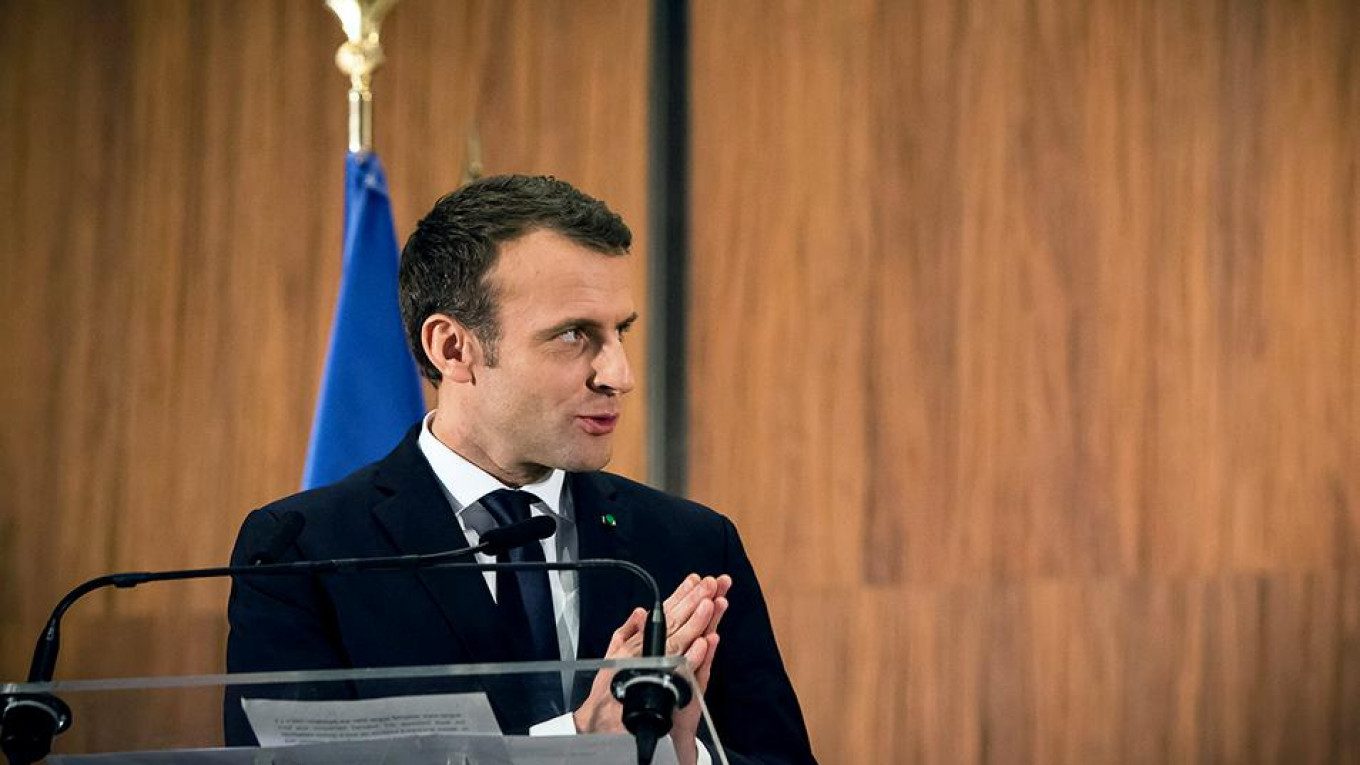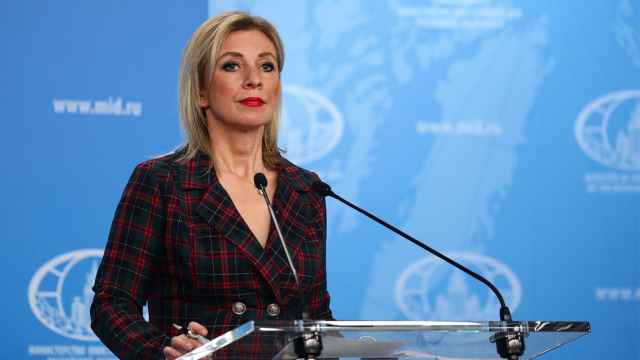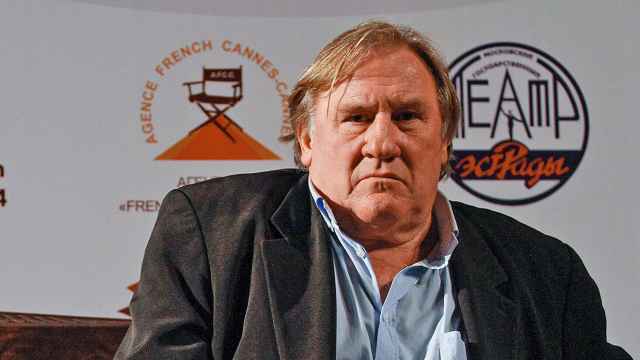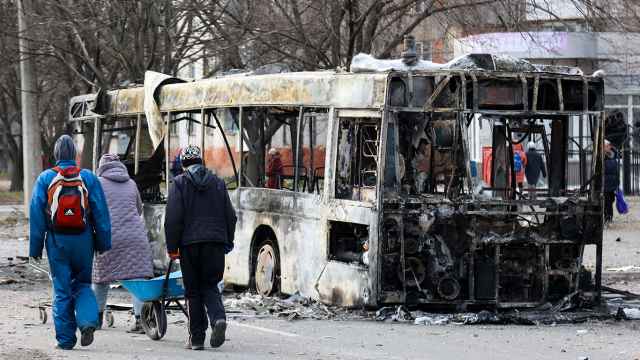French President Emmanuel Macron said on Friday he met the head of Russia’s oldest rights group as well as the widow of Alexander Solzhenitsyn, the Nobel literature laureate and prominent dissident of the Soviet era.
Macron is in St. Petersburg for two days where he met with Russian President Vladimir Putin on Thursday for talks on international crises such as Syria and Iran.
Facing calls at home to send a signal on human rights and democratic values to the Russian leader during his visit, Macron posted pictures on Thursday night of his meeting with the head of the Memorial rights group, Alexander Cherkasov.
As the first non-governmental organization registered in the Soviet Union, Memorial is a symbol of the fight for democracy and human rights in Russia.
It is now one of hundreds of NGOs under scrutiny for receiving funding from abroad and involvement in what is loosely defined as "political activities."
"Memorial is really the symbol of a democratic Russia that is brutalized by the authorities. Macron can show that Russia, for him, is not only its leaders but also its civil society," French philosopher Michel Eltchaninoff told Reuters.
Macron also posted on Twitter a video of his meeting with Solzhenitsyn’s widow, Natalia Solzhenitsyn, whom he called "the echo of a voice that marked the 20th century and continues to shine in ours."
Long banned at home, Alexander Solzhenitsyn gained fame when Soviet leader Nikita Khrushchev allowed the publication in 1962 of his “One Day in the Life of Ivan Denisovich,” which described the horrifying routine of labor-camp life.
He won the Nobel Prize for Literature in 1970 for his work, including “The Gulag Archipelago,” a chronicle of his own and thousands of other prison-camp experiences.
His books unveiled the dark secrets of the Gulag network of camps where millions of Russians died during Stalin’s purges. Some read and distributed his books underground, defying state persecution.
After Solzhenitsyn’s return following his expulsion from the country, the post-Soviet leadership paid him much respect. But he became increasingly critical of the state of modern-day Russia, denouncing corruption.
A Message from The Moscow Times:
Dear readers,
We are facing unprecedented challenges. Russia's Prosecutor General's Office has designated The Moscow Times as an "undesirable" organization, criminalizing our work and putting our staff at risk of prosecution. This follows our earlier unjust labeling as a "foreign agent."
These actions are direct attempts to silence independent journalism in Russia. The authorities claim our work "discredits the decisions of the Russian leadership." We see things differently: we strive to provide accurate, unbiased reporting on Russia.
We, the journalists of The Moscow Times, refuse to be silenced. But to continue our work, we need your help.
Your support, no matter how small, makes a world of difference. If you can, please support us monthly starting from just $2. It's quick to set up, and every contribution makes a significant impact.
By supporting The Moscow Times, you're defending open, independent journalism in the face of repression. Thank you for standing with us.
Remind me later.






